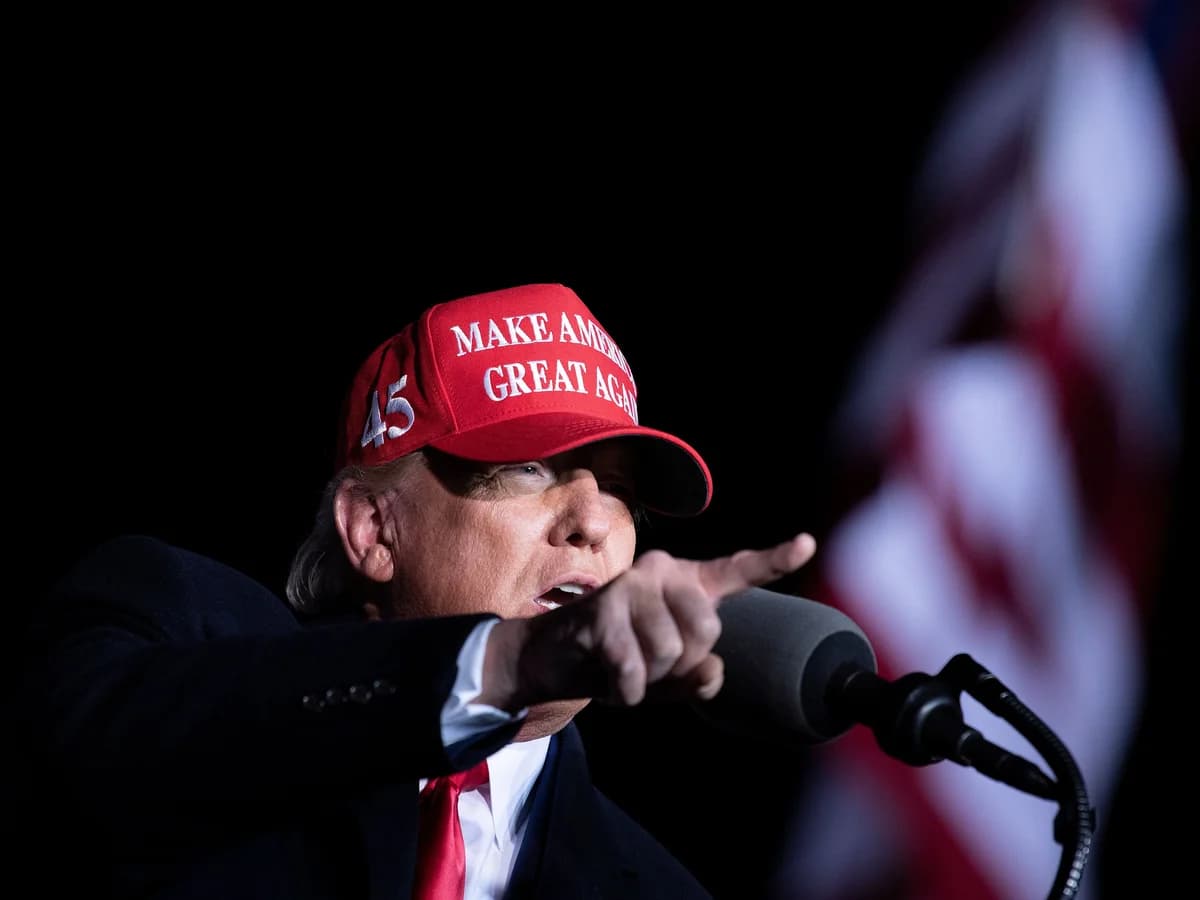We're loading the full news article for you. This includes the article content, images, author information, and related articles.
The move by the Trump administration to re-investigate the five-year-old presidential election raises critical questions for Kenya on democratic norms, electoral integrity, and the international standing of a key ally.

WASHINGTON D.C. – The United States Department of Justice (DOJ) has formally requested 2020 presidential election records from a major county in the state of Georgia, a move that re-ignites baseless claims of widespread fraud five years after the vote. The directive, issued on Thursday, 30 October 2025, EAT, targets Fulton County, a Democratic-leaning area that has been central to former President Donald Trump's unsubstantiated allegations about the election he lost.
In a letter obtained by international media, the DOJ's Civil Rights Division, led by Assistant Attorney General Harmeet Dhillon, a Trump appointee confirmed in April 2025, demanded that Fulton County officials turn over a wide range of documents. These include voter lists, ballot images, and chain of custody forms that were previously subpoenaed by Georgia's state election board. The request gives the county 15 days to comply.
This action is part of a broader, more assertive strategy by the administration concerning election administration. The DOJ has also sought voter roll information from 40 states and has sued eight states that refused to comply. Furthermore, the White House recently appointed Kurt Olsen and Heather Honey, two figures known for their legal efforts to overturn the 2020 election results, to roles related to voting issues.
The Justice Department justifies its demand by citing a provision in the Civil Rights Act of 1960, which grants the Attorney General the authority to request and inspect election records. However, the same law stipulates that such records must be retained for only 22 months following a federal election. This legal timeframe for the 2020 election has long since expired, raising questions among legal experts about the basis for the current demand.
Investigators have previously cleared Fulton County of any significant wrongdoing in the 2020 election. Despite these findings, a Republican majority on the county's election board voted in 2024 to reopen an investigation and subsequently asked the DOJ to intervene. In her letter, Dhillon referenced correspondence from "voter transparency advocates" alleging "multiple instances of government obstruction of transparency requests."
For Kenya and other democracies in the region, the persistent questioning of certified election results in the United States carries significant weight. The U.S. has historically been a key partner in promoting democracy, good governance, and the rule of law in Kenya. This new offensive against its own electoral history could weaken its moral authority and create a troubling precedent for nations grappling with contentious elections.
Key areas of concern for the Kenyan public include:
The U.S.-Kenya relationship was elevated to a strategic partnership in 2018, with democracy and governance as one of its five core pillars. However, recent events, including the U.S. response to youth-led protests in Kenya, have led some civil society groups to question the depth of Washington's commitment to the Kenyan public versus its government. The current actions by the DOJ could further complicate this dynamic, providing a powerful talking point for those who argue against international pressure on domestic political matters.
As this story develops, the focus will remain on whether Fulton County complies with the DOJ's request and the ensuing legal and political battles. For observers in Kenya, however, the broader implications are already clear: the challenges to democratic institutions are not confined to young democracies but are actively playing out in one of the world's oldest, with potential ripple effects across the globe.
Keep the conversation in one place—threads here stay linked to the story and in the forums.
Sign in to start a discussion
Start a conversation about this story and keep it linked here.
Other hot threads
E-sports and Gaming Community in Kenya
Active 9 months ago
The Role of Technology in Modern Agriculture (AgriTech)
Active 9 months ago
Popular Recreational Activities Across Counties
Active 9 months ago
Investing in Youth Sports Development Programs
Active 9 months ago